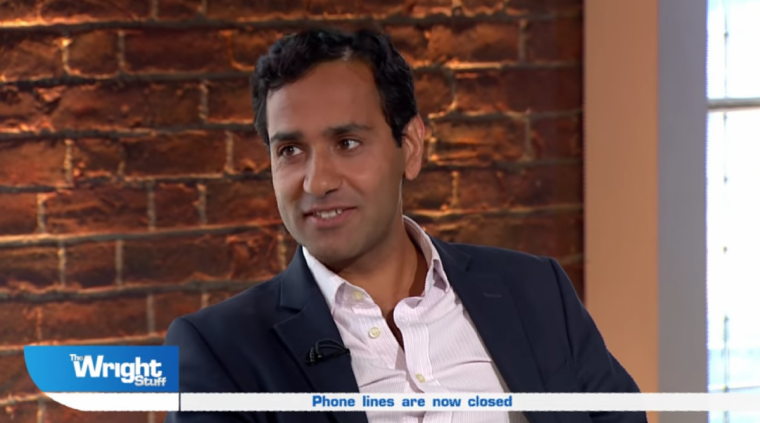Why the Special Envoy on Freedom of Religion or Belief role is invaluable
The role of Special Envoy on Freedom of Religion or Belief (FoRB) is less than 18 months old, but with a mandate to bring together efforts "across the UK Government, with faith actors and civil society to promote the UK's firm stance on religious tolerance abroad," it must remain a key feature of any incoming government.
The post was created in July 2018, by Conservative Prime Minister, Theresa May, who appointed Lord Ahmad of Wimbledon as the first Special Envoy on FoRB, a post he held alongside his other duties as Minister of State for the Commonwealth, UN and South Asia, and the Prime Minister's Special Representative on Preventing Sexual Violence in Conflict.
In September 2019, Prime Minister Boris Johnson appointed Rehman Chishti MP as Lord Ahmad's successor, who, despite being only the second Special Envoy, is also the first person in the government whose role is solely dedicated to FoRB.
Now, as the general election approaches, the Labour Party has pledged to "appoint a Special Envoy for Freedom of Religion or Belief to work across government to promote Freedom of Religious Belief in the UK and abroad", while the Liberal Democrats have stated that they will "Appoint an Ambassador-level Champion for Freedom of Belief."
In the lead up to Brexit, FoRB remains a relevant issue, not least because research by the Religious Freedom and Business Foundation suggests that the promotion of FoRB contributes to better economic and business outcomes. There is evidence that religious freedom reduces corruption, promotes peace and multiplies trust, all of which contributes to more favourable economic conditions and more productive trading relations.
The Special Envoy on FoRB is uniquely positioned within the Foreign and Commonwealth Office (FCO), reporting to both the Foreign Secretary and the Prime Minister to raise FoRB issues at the highest levels.
During his time as Special Envoy, Lord Ahmad was a vocal advocate for FoRB in the UK government and in international fora, such as the UN Human Rights Council (HRC). At the 40th session of the HRC in February this year, he raised concerns regarding the treatment of Uyghur Muslims in China, and Christians, Hindus and Ahmadi Muslims in Pakistan, among a range of issues. Having such an important advocate inside the UK government is invaluable, as it raises the profile of FoRB issues both nationally and internationally.

The Special Envoy is also responsible for highlighting the UK's concerns about the situation of FoRB in countries with whom the UK is engaged in bilateral dialogues. In February 2019 Lord Ahmad visited Pakistan, where he raised UK concerns about FoRB and the protection of religious minorities with the country's Foreign Minister and Human Rights Minister.
Since Rehman Chishti was appointed, he has taken a leading role in taking forward the recommendations of the recent Independent Review into FCO Support for Persecuted Christians, led by the Bishop of Truro.
The Truro report acknowledges that FoRB is a fundamental human right upon which many others are dependent, and urges the FCO to make it "central to FCO operation and culture." For the FCO to fulfil this recommendation the Special Envoy role must be maintained and prioritised by the position holder in the aftermath of the general election.
Any UK Special Envoy on FoRB should seek to work closely with his or her EU counterpart, Ján Figel, who has been the Special Envoy for the promotion of freedom of religion or belief outside the EU since the role was created in May 2016. Despite having his mandate renewed annually and a lack of sufficient human and financial resources, Mr Figel has had a remarkable impact during his time as Special Envoy. He has travelled widely, meeting with national leaders, religious dignitaries, human rights defenders, academics and others, and speaking at international conferences and public events. With the ending of tenure of the Juncker Commission, it is vital that the incoming Commission renews, strengthens and further empowers the Special Envoy's mandate.
Mr Figel's active presence on the international political stage and his persistence in raising FoRB in complex diplomatic circumstances has appreciably raised the visibility of EU engagement with this fundamental human right, something the UK should seek to replicate.
The UK has a long history of promoting human rights, including the right to FoRB, in international fora around the world. The incoming government must continue this tradition by ensuring that a Special Envoy receives sufficient financial and human resources to promote FoRB and implement the Truro recommendations in full.
Mervyn Thomas is the Chief Executive of Christian Solidarity Worldwide, a human rights organisation specialising in freedom of religion or belief.











